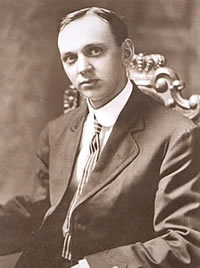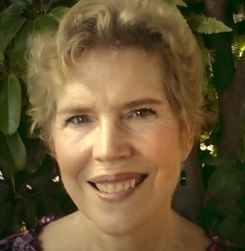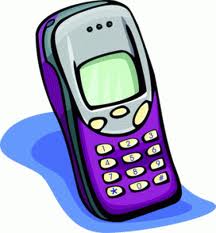new posts in all blogs
Viewing: Blog Posts Tagged with: dreams, Most Recent at Top [Help]
Results 26 - 50 of 224
How to use this Page
You are viewing the most recent posts tagged with the words: dreams in the JacketFlap blog reader. What is a tag? Think of a tag as a keyword or category label. Tags can both help you find posts on JacketFlap.com as well as provide an easy way for you to "remember" and classify posts for later recall. Try adding a tag yourself by clicking "Add a tag" below a post's header. Scroll down through the list of Recent Posts in the left column and click on a post title that sounds interesting. You can view all posts from a specific blog by clicking the Blog name in the right column, or you can click a 'More Posts from this Blog' link in any individual post.
By: frankramer,
on 8/13/2014
Blog:
(
Login to Add to MyJacketFlap)
JacketFlap tags:
dreams,
Uncategorized,
dream,
Energy,
theology,
intuition,
religion and science,
science and religion,
Intuition in the Book of Luke,
On Intuition,
On Dreams,
e=mc²,
liberation theology,
Pierre Teilhard de Chardin,
theological development,
theology of energy,
Thomistic theology,
Add a tag

Harnessing the Energy of Love
“Someday, after mastering the winds, the waves, the tides and gravity, we shall harness for God the energies of love, and then, for a second time in the history of the world, man will have discovered fire.”
– Pierre Teilhard de Chardin
Reading this quote this morning made me more aware that a future direction of Christian theological reflection will be, as it is in physics and medicine, on the nature of energy. Energy is what underlies everything. Energy is what make the universe tick (e=mc²), energy is what gives life to the body and creates abundant health, and energy is the active component of both intuition and love.
I personally believe that as we explore the depths of human intuitive capabilities as they are grounded in empathetic love rather than in the showy but superficial distractions of ESP and some other extraneous psychic phenomenon, we will rewrite a new theology. Just as Thomistic theology and liberation theology represent significant philosophical and political points of view, I believe there will be a Christian theology of energy that may one day unite religion and science. Developing intuition and observing nature as concurrent and equally important tasks, along with being inspired by revelation, will be the keys for this unfolding.
Everything we have ever learned and will learn will come through our marvelous bodies which are receptors and communicators of healing energy. As humans we also have the ability to observe and reflect upon that energy and how it works, especially through intuition and dreams. They tap us into the universal power source and inform of us of this underlying energy that drives us both as individuals and as beings who are connected with every other being in the universe. Our challenge will be to integrate our new understandings of energy, especially the healing and loving kind, with divine revelation. Just as we have learned to harness atomic power, I do hope we learn to harness the power of intuition and dreams and use the insight we gain in the service of love. Then, we will have harnessed an exponentially greater fire than our ancestors did.


By: frankramer,
on 8/6/2014
Blog:
(
Login to Add to MyJacketFlap)
JacketFlap tags:
dreams,
Uncategorized,
dream,
identity,
symbol,
Edgar Cayce,
dreamwork,
healing dreams,
working with dreams,
On Dreams,
Dreamwork Methods,
dream symbol,
dream symbols,
loss of identity,
Add a tag

Passing Through a Tight Place
One of the messages that Edgar Cayce had to say about dreams is that they point out the difference between how my higher self sees me and how my ego self sees me. Dreams are always trying to get us to let go of ego and grow into our higher selves.
Nightmares are often caused by this clash between these two parts in each of us. The ego just doesn’t want to let go to that higher self and the results show in fear, anger or depression!
Loss of identity dreams especially seem to be related to this issue of ego letting go. When we worry too much about things like money, status, job opportunities and people loving us, “loss of identity” dreams often kick in, reminding us that there is more to us than our ego identity.
How we think of ourselves is something that seems to be very important in dreamtime. I say this because so many of my dreams and those of my friends, students and colleagues who have shared their dreams with me note the theme of personal identity, or the loss of it, showing up in dreams—especially when we come to recognize our unique symbols or the commonly occurring symbols for this event.
I have to admit it was a long time before I recognized the symbol for what it meant in my dreams, even though I had the dream repeatedly over many years. In the dream I would lose my purse or have it stolen, usually by a bunch of bratty kids. I was aware enough to realize these nightmares usually occurred when I was worried about finances so I just assumed that’s all there was to it. Having the dream repeat over a period of time should have clued me in that I didn’t fully understand or appreciate the dream. Here is a typical dream:
Dream:
I go through a tight place but make it through. I realize I don’t have my purse. I go back to the tight place and see a lot of women have left their purses here going through this tight place.
Reflection:
Going through a tight place evokes the feeling of going through the birth canal, the transition to a new level of being or awareness. At the time of this dream I was just about to undergo a major spiritual event, a kundalini awakening. After doing this, I would realize I don’t have my purse. At the time, I had just come into an inheritance so money wasn’t an issue. So what did the purse mean? Sandra A. Thomson in Cloud Nine: A Dreamer’s Dictionary notes that it is related to identity. The purse holds one’s identity in the form of ID cards such as a driver’s license or passport. Going through such a major transition would cause me to lose the way I look at myself, my identity—which indeed happened to an enormous degree. The kundalini awakening had me undergo such physical, emotional and spiritual changes that I no longer recognized my “old self” on any of these dimensions. However, eventually I was led to experience the fact that at the core I am a being of energy and light, able to receive and transmit healing energy. I was being transformed. What a new spiritual identity! The dream was telling me that it wasn’t just me but there are many other women who experience this loss of identity when undergoing major transitions. The many women could be other women or other parts of myself. As it turned out, I ended up making many changes which totally changed my waking life identity as well. I left my career in IT consulting, moved to Hawaii, and became a writer, educator and life coach.


By: frankramer,
on 7/30/2014
Blog:
(
Login to Add to MyJacketFlap)
JacketFlap tags:
dream healing,
dreams,
Uncategorized,
Healing,
creative,
intuition,
dreamwork,
healing dreams,
working with dreams,
On Dreams,
Dreamwork Methods,
Add a tag

A Pick from the Healing Dream Garden
After working with dreams for nearly forty years, I know that even the worst nightmares contain a kernel of hope or healing. The following nightmare took me a long time to understand. I had several repeats until it finally “hit” me what this dream offered as its healing insight. The dream took a while to sink in perhaps because it chose as the motif of one of my greatest fears: hitting a person while driving. To make things worse, in the dream the feeling of hitting a person was so realistic—as if it really did happen.
Dream
I am driving very slowly because I sense some danger. Then, a group of kids surges in from the left. I see a young boy of 4 or 5 years old either fall or lunge into the left front of my car. Although I slam on the breaks, I hear the thud of something hitting my car. A shock wave of raw realization explodes from my chest as the force of emergency breaking flips the car on its side, throwing me on to the ground.
Stunned, I jump up and grab the child my car struck, looking for injuries. He has a little welt on the right side of his forehead, but otherwise seems well. A huge sigh of relief surges through me and I embrace him in my arms. I see his mother, the other kids and his father at a distance. Oddly enough, they just look at me and smile. They do not seem to be worried so much about the child as about me. Somehow, I know that they won’t take this matter to the police.
On waking the first impulse was huge relief from the realization that this was just a dream! Then, the fear arose that this might be an event which will happen in the future because so many of my dreams, especially the realistic ones, often manifest in the material world just as I dreamed them. I reviewed the dream, looking for clues to indicate this wasn’t such a prophetic dream. While the dream was extremely realistic, especially the feeling I had when hitting the child, there were elements that seemed symbolic. For example, I noticed that in the dream my car was red. I don’t own a red car and probably wouldn’t buy one since I find the color too intense to look at for long periods of time. So I decided that this dream wasn’t prophetic of actually hitting a real child and left the dream alone.
For a long while, and after several repetitive dreams which clearly were begging for attention, I finally summoned the courage to look at this dream. I chose to use the dreamwork paradigm of everything in the dream as being a part of myself. The young boy in the dream, because he was male, represented something work related, and because he was young, represented creative potential that was still developing. The age of the boy indicated a work related project that has gone on 4 or 5 years. I thought of my creative and meaningful work in teaching dreams which had gone on for about 4 or 5 years. A sinking feeling in me told me I was hitting on the correct interpretation. At the time, I indeed felt like this child of my creative labors had taken a hit, not by anything deliberate on my part but just because of the choices I felt compelled to make as I tried to earn a living. Each time I had this dream of hitting a child, I was considering putting my major efforts and energy into taking a well-paying but less than desirable job that would meet my financial needs. However, in doing so, I would endanger the growth of this child. The guilt, grief, and horror were rising to consciousness. Fortunately, the kid’s parents, perhaps representing my higher self, were telling me not worry. They understood. Indeed, when reflecting on this dream while still in bed, a voice from my intuition said in a gentle but informative way, “Don’t make a big deal of this!” Just getting this message provided an odd counter balance to the guilt, grief and horror.
While the child took a minor hit, it was OK. After I felt the child was safe and comforted, I wondered how I would upturn my car to get on my way again. Now, the real problem was how to get back on track after such a near disaster.
Since then, I noticed that every time I considered taking a paying job rather than taking the financial risk of continuing to do the creative but less financially reliable work of writing, teaching and life coaching, this dream of either hitting or nearly hitting a child would repeat itself. My dreams were telling to trust more and continue to nourish and not endanger the creativity within me. Later, as if to confirm my interpretation, I dreamed of three children telling me they want to take me some place I considered special. It gave me hope and made me realize that failing to nurture my creative endeavors would be as traumatic as hitting a child.



By: Kate Leonard,
on 7/24/2014
Blog:
Illustration Friday Blog
(
Login to Add to MyJacketFlap)
JacketFlap tags:
tips,
dreams,
business,
advice,
artists,
goals,
creative business,
aspirations,
Creative advice,
Add a tag

We all have dreams and aspirations they grow within us from any age, from the time we’re two years old and scribbling on any blank piece of paper in sight to the years in university when your dreaming up a life of bigger things you want to do and places you may want to go. Although as time goes by sometimes unless your extremely determined you can feel swayed or lose sight of the things you dreamed of and that’s why you need to grab a pen and sketch them out.
Sketching out your dreams keeps them in sight, gives you a reference to go back to when your feeling a tad lost in your aspirations or feel your not sure where your going. So here are 5 steps to sketching out your own creative dream for 2014.
1. Grab a huge piece of paper or wallpaper roll across the floor , a couple of pens and your inspiration and start doodling and jotting out your aspirations and future plans.
2 . Break them down with someone who motivates you the little steps you need to do to work towards those dreams ( They don’t seem so far away when the two of you narrow them down into tiny steps).
3. Start paving roots and pathways to begin implimenting your plans .
4. Meet new people and make connections with those who might help you on your way to where you want to be :).
5. Block out those niggling negative thoughts and “I can’t do this”, stay positive if something doesn’t work out brush yourself down and keep going as being self motivated is key and the effort you put in is sure to pay off.
Image by Designer Alyssa Nassner you can find more about her and her designs “here”.
What Messages Do You Receive From Your Dreams?
By Donna M. McDine
While working on your latest manuscript do you feel like you are living and breathing your characters? To the point, where you can’t get them out of your head, even in your dreams. What do you think your dreams are trying to tell you about your characters? Do you think they are trying to relay specific messages to you to include in your manuscript?
I know the non-writer’s out there who are reading this may think the above statements are outlandish and should land me in the local psych ward or at the very least to a therapist’s office. Please know I’m not delusional, I’m practical in this case. As an author, the creation of our characters is personal and they do indeed become part of us. Making it often times difficult for us to shake our characters actions and moods even in the twilight state of sleep.
One particular instance when my dreams began knocking me upside the head about one of my characters was the slave Jenkins I created for my first children’s book, The GoldenPathway. Jenkins originally was created for the Institute of Children’s Literature book course, but for one reason or another I shelved this manuscript. Quite some time passed and for what I thought was bizarre at first I began dreaming about the Underground Railroad and having dogs chase after me in the dark woods. When I shared this recurring dream with my sister, she was the one that connected the dots and brought up my long shelved manuscript. After her encouragement I “dusted” off this manuscript and resurrected Jenkins and David, hence the birth of The GoldenPathway.
I also had a similar experience with the creation of A Sandy Grave. After reading the news article of a washed up dead whale on a California beach I began dreaming about the ocean repeatedly. This time, I didn’t need anyone to put two and two together. I took my dreams as a positive force to get down to the nitty-gritty of the non-fiction research aspect and then creating engaging characters and storyline to be intertwined into one story.
I encourage you to keep pen, paper, and small flashlight (so you don’t wake your significant other) by your bedside for these often inspiring moments. This way you can write down your dreams immediately upon waking or for the times you are jolted awake by your characters screaming at you. Don’t ignore these instances, instead grab these creative outcries and use them to your advantage.
I’d enjoy hearing about your experiences with your dreams, whether they are writing related or not.
~~~~~~~~~~~~~~~~~~~~~~~~~
Best wishes,Donna M. McDineMulti Award-winning Children's Author
Connect with Donna McDine on Google+
A Sandy Grave ~ January 2014 ~ Guardian Angel Publishing, Inc. ~ 2014 Purple Dragonfly 1st Place Picture Books 6+, Story Monster Approved, Beach Book Festival Honorable Mention 2014, Reader's Favorite Five Star ReviewPowder Monkey ~ May 2013 ~ Guardian Angel Publishing, Inc. ~ Reader's Favorite Five Star ReviewHockey Agony ~ January 2013 ~ Guardian Angel Publishing, Inc. ~ Reader's Farvorite Five Star ReviewThe Golden Pathway ~ August 2010 ~ Guardian Angel Publishing, Inc.~ Literary Classics Silver Award and Seal of Approval, Readers Favorite 2012 International Book Awards Honorable Mention and Dan Poynter's Global e-Book Awards Finalist 
By: frankramer,
on 7/23/2014
Blog:
(
Login to Add to MyJacketFlap)
JacketFlap tags:
dreams,
Uncategorized,
dream,
healing dreams,
working with dreams,
On Dreams,
Dreamwork Methods,
dream healing,
the Healing Dream Garden,
Add a tag

A Pick from the Healing Dream Garden
Background:
Several years ago, after taking a five-year hiatus from full-time work, I felt I was ready to return to work. Going back to work later in life is not easy, but in my case I have been blessed with terrific energy, motivation and good health and so I wasn’t worried about that.
At this stage, however, I was not ready to grab the first thing that came along. Obviously after 37 years of working, there are many jobs that have the “been there and done that” or “at my age, I don’t need to do that…” feel to them. Hopefully, over the years I have learned to work smarter and could apply any experience I’ve gleaned by choosing, getting and keeping a suitable job. When I applied for several significant jobs, I was well received in job interviews and knew I could eventually land the one I best suited for me.
My psyche must have been preparing me for this event because I had some powerful dreams which seemed to be work related, expressing my anxieties about what to do, being up to working full-time again and the effects of my efforts to go back to work but some were telling me that the prospect of working would not be a problem. Here is one of them.
Dream:
I own a large house (not the actual one I was living in at the time of the dream.) A young, healthy worker comes in the house and says he wants a room to live in. I say OK, and tell him he can take the right front bedroom. Before I know it, there are two other young, strapping men just like him who are living in the room. I go over to investigate and find the number of workers has jumped to about 20. It was really a full house—full of all the workers. I tell one man to write down their names so I can keep track of them. He does. I notice that the room has suddenly expanded to look like the inside of factory. Something in me wonders if this is really still my house?
Reflecting on this dream using the dreamwork method that everything in the dream represents a part of myself, I could see that the house was my psychic home, and that the men (who usually in my dreams represent work-related issues) were energetic, healthy and ready to work. They just needed a place to stay. I found the dream comforting, letting me know I had the energy of much ready “manpower.” But something in me asked, “Is this really me? Do I want all these men here? Is this my responsibility?” The dream raised more questions than answered them but I knew I was capable of working. The real issue might be found in limiting the amount of work I take on. The dream gave me confidence.


By: frankramer,
on 7/9/2014
Blog:
(
Login to Add to MyJacketFlap)
JacketFlap tags:
dreams,
Uncategorized,
dream,
Henry Reed,
spiritual growth,
Edgar Cayce,
dreamwork,
On Dreams,
Dreamwork Methods,
personal spirituality,
spiritual development,
spiritual methods,
Add a tag

Edgar Cayce circa 1910
Edgar Cayce was one of the groundbreakers in the early 20th century that encouraged average people to take spiritual growth beyond following the rules and knowing the teachings of an organized religion, and make it their personal responsibility. Some of the teachings he advocated that support nurturing the spiritual development of the ordinary person can be seen in the following approaches:
- Each person must find his own way. No matter how educated a person can become in a religious tradition, each person must find his or her own path to the Divine that is unique because it is based on a personal experience of the Divine in daily life. It is the purpose we are put on earth. While Cayce stated that Christ was the pattern for all mankind, all religions pointed to the way and that each person could find the way if they modeled their life on the loving Christ-like life, no matter what religion they practiced. Gurus, priests, and teachers can only do so much and ultimately one must rely on personal experience, intuitive insight and making choices in keeping with one’s Ideal.
- Be part of a reflection group where all are equal. In order to grow spiritually it is very helpful to be part of a small group which gathers for mutual support, spiritual reading and reflection. In these groups, each person has an equal say to freely question and explore, trusting in the truth and personal experience to guide. There is no “leader” to impose either a presence or a certain teaching. Rather, a facilitator provides guidelines and keeps the process going.
- Insist on the importance of the average person remembering and learning from dreams as a means to his or her personal spiritual growth and development. In the early 20th century western culture, dreams were suspect – something the average individual was not encouraged to dwell upon by religious leaders. Very few understood the value of working with dreams, and fewer still were truly knowledgeable in doing so. This cultural attitude is seen even today in the huge number of people who can’t and don’t want to remember dreams. However, Edgar Cayce thought that everyone had to take responsibility for their own spiritual journeys and dreamwork was necessary because it was a dependable way of connecting to the soul and its journey. Waking life tends to distract us from our real purpose as it imposes its own demands that are often different from the soul’s demands. As Henry Reed, Ph.D. says in the Edgar Cayce Guide, Awakening Your Psychic Powers, “a dream is an experience of the soul.” Learning from our dreams helps us understand what our soul is feeling in the human realm and what it wants us to do to grow towards the divine. Through dreams we come to know our souls.
- Provide dreamwork guidelines that can work for the average person. On the official Edgar Cayce website, Keven Todeschi , Executive Director and CEO of Edgar Cayce’s A.R.E. and Atlantic University, writes that Edgar Cayce provided “average individuals with guidelines for working with what has become one of the most practical approaches to dreams.” http://www.edgarcayce.org/are/edgarcayce.aspx?id=2255. Among these guidelines were the ideas that only the dreamer can interpret his or her own dream and that one’s deeper consciousness is impelling the dream, driving it forward so that we might better understand our life in this world in relationship to our soul’s purpose.


I turned in a book February 19th, then February 20th I started a new book and wrote every day, evening and weekend. Even when I was on "vacation" or doing school visits.
I turned that book in on June 1. The editor has already given me edits (she's fast!) and she loves it. For the first time in literally years, I've got some free time. I want to take a step back and look at my my one wild and precious life (to paraphrase poet Mary Oliver). I want to decide it's "okay" to read more for pleasure, or even to watch one of the many TV programs I've only heard about. I want to get myself back in balance, instead of to always be working.
What things do you wish you were doing?
.jpg?picon=1806)
By:
Heather Dyer,
on 7/2/2014
Blog:
An Awfully Big Blog Adventure
(
Login to Add to MyJacketFlap)
JacketFlap tags:
events,
Dreams,
psychology,
meaning,
symbols,
metaphors,
Heather Dyer,
Elinor,
the flying bedroom,
Add a tag
Last week I did an event at my local library to promote my new children's book The Flying Bedroom. A few children turned up - but a few adults came along as well - some of whom knew me and perhaps were there out of curiosity about the sort of thing I write.
After the event one of them came up to me and said he'd he loved the ideas in The Flying Bedroom- "so many metaphors!" he said, and looked at me knowingly. "Yes," I said, self-consciously. "I know."Perhaps this is why I always feel slightly awkward when reading my stories to adults. Like dreams, our stories are full of symbols – and symbols are the way our unconscious sends us messages. You don't have to be a psychiatrist to figure out the issues I’m still resolving – you just have to read my children’s books.
In fact, they say that the people in our dreams aren’t themselves at all – they just represent alternative versions of ourselves. Might the same be said of the characters in our stories? Might Elinor be me?
In one adventure in The Flying Bedroom, Elinor wakes up and is appalled to find herself in bed on centre stage, with an entire audience waiting for her to perform. Insecure? Moi?
In the next adventure, Elinor finds her bedroom stranded on the moon and longs to get back home again, to that blue-green marble on which resides 'everyone she knew and everyone who'd ever been'. Might she be trying to tell me that, despite the fact that I love living alone, I do need people after all?
Is it Elinor or me who says, 'the world is a big place; it seems a shame to stay in one place all your life when there's a world out there waiting to explore'? - then contradicts herself by saying: ‘it's only when you're far from home that you can see how beautiful it is'? And surely it is Elinor – not I – who speaks the line: "I don't want to kiss Prince Charming!" The intention to reveal our innermost selves is never intentional - but when we make up stories from the heart, it happens regardless. If we try to deny that our stories reveal something about us, we're like the psychiatrist's patient who is asked to 'write down his dream and bring it in next week to be analysed’. The patient thinks he'll pull the wool over his psychiatrist’s eyes by making something up from scratch, instead. Then, when the psychiatrist analyses the ‘dream’ the patient says, ‘Ha! But it wasn't a dream - I just made it all up.’
And the psychiatrist just smiles and says, 'same difference’.
Do your stories reveal something about you?
By: frankramer,
on 7/2/2014
Blog:
(
Login to Add to MyJacketFlap)
JacketFlap tags:
dreams,
Uncategorized,
Healing,
dreamwork,
healing dreams,
dream journaling,
On Dreams,
benefits of remembering dreams,
Dreamwork Methods,
health and dreams,
health benefits of dream journaling,
Add a tag

Rod of Aesclepius
Since the days of the ancient Greek healing centers called
aesclepions, dreams have been associated with health and healing. Keeping a regular record of your dreams will clearly demonstrate the special relationship dreams have to health. It will produce many health related benefits to include:
- The revealing of your personal symbols, themes and processes that relate to healing and health. You will better understand how your psyche images and presents health related information to your waking mind when you see the repetitive appearance of certain symbols. You may see a physician or health care worker reappear over and over or you may be given a profound symbol for a disease you are facing. The symbol may hold the key to the healing.
- Having a recording of patterns of healings, diagnoses, and warnings of diseases and ailments. As you learn to recognize your symbols for these events, you will see the congruences between the status of your health and the dream symbols.
- Seeing that certain ailments may be healed for you in the dream. Dream healings can come as a gift given. You may told in the dream that a certain issue, perhaps one you didn’t even know about, was being taken care of. If you were not in the habit of remembering and writing down your dreams you would not even be aware of the healing process going on without your intervention.
- Gaining deep insight into specific health issues over a period of time. The symbol of a particular ailment may change over time, reflecting the change in the ailment itself—for better or worse that may help the dreamer better deal with the ailment.
- Giving clues as what will be the outcomes for certain choices. Dreams will often present scenarios that can and do come true in waking life. So when an alarming dream happens, it is important to write it down, reflect on it and learn for it. For example, a friend of mine had disconcerting repetitive dreams about being arrested for drunk driving. While he is a moderate drinker, there is probably little likelihood this will happen but certainly the warning is there to help him make good choices about drinking and driving. And if he should make a wrong choice, this dream could very well come true. Also, because dreams can have multiple meanings, I told him his dream might actually be about something else entirely. Only he could know for sure.
- Accessing information that gives me choices. Therefore, the power of dreams is not so much that they can look into the future; it’s that when remembered, they give us the opportunity to make a different choice than the one we made in the dream— if we want to. They give us a chance to test drive a decision before it pans out in real life. From a lifetime of recording my dreams I have found that all major issues in life seem to be “worked through” with a choice made in dream time prior to my need to make that decision in waking time. It’s like there is a program that has been set by a decision I have already made in dream time that will manifest itself in waking life. Having all my dreams written down lets me go back and see how an issue, especially a health related one that I am facing now, got resolved earlier in a dream. If I liked the way it turned out then, then I can resolve it as I did in the dream. If I did not like the outcome, I can simply make a different choice as I did in the following instance.


By: frankramer,
on 6/27/2014
Blog:
(
Login to Add to MyJacketFlap)
JacketFlap tags:
Edgar Cayce,
intuitive insight,
dreamwork,
On Dreams,
Dreamwork Methods,
dream healing,
aesclepion,
Aesclepius,
asclepion,
Asclepius,
dream incubation,
healing in dreams,
incubating a dream,
dreams,
Uncategorized,
Henry Reed,
Add a tag

Relief from an Asclepion Temple
Instead of just hoping you will get an inspiring or helpful dream, you proactively intend that what you need will come to you. It may come in the form of metaphor or story or a direct answer that is easily understandable. Early historical references to this kind of dream can be seen in the dream healing practices of the
asclepions of ancient Greece and elsewhere in the Mediterranean. These temples to the healing god Asclepius were forerunners of our modern hospitals in that people went there to eat healthy food, exercise and be treated for diseases and conditions diagnosed through dreams.
Henry Reed, Ph.D., of the Edgar Cayce Institute for Intuitive Studies developed a detailed, methodically and scientifically researched explanation for incubating dreams which can be found at: http://www.henryreed.com/incubation.pdf. Please check it out for an in-depth understanding of incubating a dream.
Basic Instructions for Incubating a Dream
A shorter version of the dream incubation instructions would include doing the following:
- On the evening before you want to have the dream, carefully think about the issue or concern for which you want inspiration or resolution. The more energy and thought you put into this helps with the outcome you will get. It should be something that is of genuine concern either to you or somebody else.
- You may want to light a candle or do a little ritual to add significance to the occasion.
- Write down the issue and the question. Pose a question that is as specific as possible in getting the information or assistance you want.
Example of Concern:
I haven’t had an eye exam in a long time. I am worried because my eyes aren’t quite as sharp as they were before. Do I have an eye problem? I hope I’m not going blind. (Be aware of your feelings abou the issue such as fear. This will add a sense of importance and intensity which, based on my experience, helps for a better outcome.)
- You may want to write down the question and put it under your pillow.
- Just before you drop off to sleep tell yourself again (or pray if that is normal for you) that you want a dream which will give insight, an answer or a resolution to your question.
- Some people have more than one dream during any given night. Take note of the very first dream you get. That is the dream that is the response to your request.
- Before moving and while still in bed, review the dream sequence and give the dream a title. Then note every image, object, person, sound, etc. in the dream.
- On rising or while still in bed, write down the dream in detail in the present tense and give the dream a title.
Example of Dream:
House with Dirty Windows
I am walking around my yard looking at my house. I am pleased to see that it is in pretty good shape. There are no major problems. I do notice, however, the panes in the windows have a film on them. I take a closer look and see that the glass itself is OK. It has not corroded or been scratched. The windows just need cleaning.
- Reflect on the dream in general by making associations. What do the images in the dream remind me of in my life? When I see the house in my dream, it reminds of my body. For the most part, it’s in good shape, but the windows need cleaning.
- Reflect on each association: What do the dirty windows remind me of? My eyes! Windows let light into the house just like my eyes let light into my brain. My dream indicates there is a problem but it can be fixed. Since the windows are basically OK, my eyes are probably also OK. Maybe my eyes just need “cleaning.” Maybe I’m getting cataracts and need to have them removed.
- Act on the dream. Go check the windows of my house. Maybe they are dirty! Dreams have a way of making comments at various levels of meaning. Go see a doctor about my eyes with the confident feeling that whatever my issue is, it can be fixed. Most likely my eyes are basically OK.
Remember that any advice you get in dreams is not a substitute for seeing a professional like a doctor, mechanic, lawyer, etc! With serious issues, it helps to get both inner advice and advice from experts! You will want to touch all the bases and go with what works for you.


My darling mother is a writer, and although she has never been published, she keeps on plugging away, expecting nothing really to come of it, but deep down wishing something would. So I've started illustrating a few of them, and who knows what might come of it. This is from one I've been working on.
By: frankramer,
on 6/17/2014
Blog:
(
Login to Add to MyJacketFlap)
JacketFlap tags:
intuition,
insight,
intuitive,
Ashlynn Acosta,
Dead Men Do Tell Tales,
intuitive insight,
On Intuition,
Diane Brandon,
Jean Raffa,
dreams,
Uncategorized,
Add a tag

Fran Kramer
About two weeks ago a long-time friend,
Gwen Plano, invited me to join her on a Blog Tour. I thought it would be an interesting way for us to tell about our books and encourage others to do the same. Gwen has just published what I would call a spiritual memoir,
Letting Go into Perfect Love. I suggest you visit her blog and check out this profoundly moving book.
For the Blog Tour I was asked to answer four questions, which for me were ones I often address when people ask me about my books.
The Four Questions:
1) What Am I Working On? I am currently writing the sequel to a book published last year called Dead Men Do Tell Tales, a teen mystery novel that pits the intuitive and informed dreamwork talents of a teenager, Ashlynn Acosta, against the traditional gumshoe methods of her detective father. This book’s working title is Too Much of a Good Thing, and has our teenage sleuth entering her first romance amid the throes of a complex theft and murder brought on by hoarding. Her single dad is in the throes of a first romance since his wife passed away several years before. Again, father and daughter find they have much in common as they each must trust intuition in their own ways to navigate the shoals of romance and crime.
2) How does my work differ from others of its genre? My mystery stories are different from most in that the protagonist uses tried and true dreamwork and intuitive meditation methods learned from a dream mentor to help solve a crime. As a result the reader gets a thrilling, fast paced mystery with the added benefit of learning about developing inner skills. A Reader’s Guide in the back gives detailed explanations of the how-to’s.
A couple of reviewers have called my book something like “a New Age Nancy Drew,” a good teen mystery with the added enticements appealing to the current fascination with dreams and deeper intuitive understanding.
3) How does my writing process work? I usually resist sitting down to write but when I do, the floodgates open and I just let it flow. I often can’t type fast enough as the ideas start gushing. Eventually I reach a block and then take a break. New ideas emerge when resting, meditating or driving.
Why do I write what I do?
I write because I have a message that I am passionate about: how to access inner wisdom through dreams and meditation. I write all sorts of things for different age groups, based on their various needs for different forms of intuitive insight. Usually, I find it very easy to write because I write about things that energize me such as creative problem solving through dreamwork and the creative process itself.
It is my pleasure to introduce two very interesting and accomplished women who will continue the Blog Tour:

Diane Brandon
has been an Integrative Intuitive Counselor, Intuition Expert and Teacher, Corporate Consultant, Author, and Speaker since 1992. She brings other modalities into her work, including Dream Interpretation, Individualized Guided Meditation, Regression, Natural Process Healing, and Customized Exercises and Affirmations.
She’s the author of Intuition for Beginners – Easy Ways to Awaken Your Natural Abilities and Invisible Blueprints (one of only two books on intuition that Ananda Village, based upon the precepts of Yogananda recommends), as well as several articles, and a contributing author to The Long Way Around – How 34 Women Found the Lives They Love and Speaking Out. Her next book, Dream Interpretation for Beginners, will be published in Winter 2015. Diane was the host of “Naturally Vibrant Living” on Web Talk Radio and Blog Talk Radio and “Vibrantly Green with Diane Brandon” on Ecology.com. She also has Meditation CDs available, including “A Journey Within Meditation,“ “Natural Process Healing,” and “Brainstorm in the Boardroom with Great Leaders,” as well as exercises for intuitive development.
Diane has appeared extensively on radio shows throughout the country, having been interviewed on dreams and intuition.
Her two websites are www.dianebrandon.com and www.dianebrandon.net. She may be contacted at [email protected].

Jean Raffa
is an author, speaker, and leader of workshops, dream groups, and study groups. Her job history includes teacher, television producer, college professor, and instructor at the Disney Institute in Orlando and The Jung Center in Winter Park, FL. She is the author of four books, a workbook, a chapter in a college text, numerous articles in professional journals, and a series of meditations and short stories for Augsburg Fortress Publisher.
Her newest book, Healing the Sacred Divide: Making Peace with Ourselves, Each Other, and the World was launched by Larson Publications, Inc. at the New York Book Fair in June of 2012. In 2013 it won the Wilbur Award, which is given by the Religion Communicators Council for excellence in communicating religious faith and values in the public arena and for encouraging understanding among faith groups on a national level.
Jean is also the author of The Bridge to Wholeness: A Feminine Alternative to the Hero Myth, and Dream Theatres of the Soul: Empowering the Feminine Through Jungian Dream Work.
Healing the Sacred Divide can be found at Amazon and Larson Publications, Inc. Ebook versions of The Bridge to Wholeness and Dream Theatres of the Soul are at Amazon, Kobo, Barnes and Noble, Smashwords,and Diesel Ebooks
Dr. Raffa’s websites are http://jeanraffa.wordpress.com/ and www.jeanraffa.com.


By: frankramer,
on 6/10/2014
Blog:
(
Login to Add to MyJacketFlap)
JacketFlap tags:
dreams,
Uncategorized,
Healing,
chakras,
energy healing,
dreamwork,
On Dreams,
Dreamwork Methods,
intuitive healing,
personal dream symbols,
colors in dreams,
healing the chakras,
shapes in dreams,
Add a tag

An Artistic Rendering of the Seven Chakras
According to Hindu tradition, the energy field of the human body is made up of seven major energy centers called chakras. There are more chakras, but for the purpose at hand these are the main ones that seem in my experience to get reflected in dreams. Each of these energy centers generates its own kind of energy to deal with certain life issues. If there is a wounding correlating to one of these issues it affects the quality of the energy in the chakra and can cause disease to a part of the body related to the chakra. Thus, any disease or emotional imbalance is viewed as relating to one or more of these chakra areas.
Getting to Know the Color and Shape of Your Chakras
As with any other kind of issue, once you are aware that a chakra and its energies are presenting themselves in a dream, you can work with that chakra and any relevant issues through dreamwork. You just need to know what to look for in terms of symbolism and metaphor. A good book on chakras can help provide you with the usual colors for the chakras as well as corresponding issues. A good book on dreams may provide the commonly held symbols for the chakras in dreams. On-going dreamwork will reveal the colors of your chakras that are unique to you and your private dream vocabulary. Your colors may appear in different color tones, often depending on the type of energy manifesting from the chakra.
Colors
From the many different sources I’ve read on the subject, the following colors of the chakras are usually given in the manner of how they appear on the spectrum of the rainbow:
1st Chakra: Red
2nd Chakra: Orange
3rd Chakra: Yellow
4th Chakra: Green
5th Chakra: Blue
6th Chakra: Purple
7th Chakra: White
Shapes and Symbols
In my dreams chakras usually present themselves as big round buttons on a tunic I am wearing. They sometimes need to be polished; a hint that I have some spiritual work to do. Also, I have found that a predominant color in dreams (other than black) on a major symbol such as the walls of a room is a good indicator that a chakra issue is present. For example, in the following dream the bright red of the walls was so odd and overpowering it immediately drew my attention to it. Since the wall indicated a space of that color I took it be the “space” of my 1st chakra.
Example (Dream): I am entering a bathroom that is oddly decorated with big, bright red tiles on the walls. The tiles are hard to miss. I start to pee in the toilet.
Peeing in the toilet naturally made me associate with the words “pissed off,” suggesting that perhaps I had a 1st chakra issue needing release. Reflecting on this possibility raised several concerns related to 1st the chakra such as finances and my place in the world that perhaps I needed to work on.



By: Genevieve Petrillo,
on 5/26/2014
Blog:
Cupcake Speaks
(
Login to Add to MyJacketFlap)
JacketFlap tags:
dreams,
acceptance,
writing,
children's literature,
ideas,
picture book writing,
submitting,
quote,
inspirational quote,
Add a tag
Visualize this thing you want. See it, feel it, believe in it. Make your mental blueprint and begin. Robert Collier
 Visualizing is an important part of a writer’s journey. Mom always visualized opening a letter of acceptance. She walked herself through every bit of how it would feel. The envelope – the weight of it, the uncertainty – that wiggly feeling in the tummy, the zipping it open – the rough edges, and the finally knowing – somebody said yes. Over and over for years and years, she saw it, felt it, and believed it.
Visualizing is an important part of a writer’s journey. Mom always visualized opening a letter of acceptance. She walked herself through every bit of how it would feel. The envelope – the weight of it, the uncertainty – that wiggly feeling in the tummy, the zipping it open – the rough edges, and the finally knowing – somebody said yes. Over and over for years and years, she saw it, felt it, and believed it.  But guess what. When her first story was sold, no letter came. Her publisher called her on the phone and left a message!
But guess what. When her first story was sold, no letter came. Her publisher called her on the phone and left a message!  That being said, Mom still visualizes getting an acceptance letter. Over and over. Every detail. Every single day. She says, “This will happen.” and “It can’t hurt.” and “What is going on in that tiny brain of yours?”
That being said, Mom still visualizes getting an acceptance letter. Over and over. Every detail. Every single day. She says, “This will happen.” and “It can’t hurt.” and “What is going on in that tiny brain of yours?”

What time is dinner?
I visualize, too, of course.

What time is dinner?
I see and feel and believe in tons of treats, piles of toys,  long walks, and playtime that never ends.
long walks, and playtime that never ends.  My mental blueprint shows how I will get onto the table, into the garbage, out the window, and through the door.
My mental blueprint shows how I will get onto the table, into the garbage, out the window, and through the door.  My brain may be tiny, but it’s busy all the time. Visualizing…..
My brain may be tiny, but it’s busy all the time. Visualizing…..

What time is dinner?


By: frankramer,
on 5/23/2014
Blog:
(
Login to Add to MyJacketFlap)
JacketFlap tags:
dreams,
Uncategorized,
images,
energy healing,
energy field,
dreamwork,
healing dreams,
On Dreams,
Dreamwork Methods,
Intutive Methods,
intuitive healing,
aesclepion,
using dreams to heal,
Add a tag

An Energy Symbol
As I discovered in my
kundalini experience, and as Asian medicine teaches, the human body is a great receptor and communicator of energy. According to Asian medicine, the total body’s energy field connects and communicates with all its parts to keep itself healthy. It seems to hold within it the overseeing intelligence that tells the pancreas to produce insulin, or lets us know to drink fluids when we are thirsty. What is implied is that each of the organs has an intelligence of its own that can communicate with other organs and parts of the body, and that there is a manager handling all this information.
Dream Images Give Us Pictures of our Energy
Intuitive healing basically uses the body’s capacity to receive and transfer energy through its energy field. The body’s five senses, memory, imagination and the so-called sixth sense, intuition, both hold and convey the energy in messages concerning the body, mind or spirit. Content presented in any of these ways through dream, prayer and intuitive meditation can be viewed as representing or symbolizing a piece of energy or information present in the body’s energy field. Thus, we can get a handle on what the body‘s energy field is telling us about our current health status, a possible diagnosis for an issue, or a potential healing treatment. For example, dream images may be symbols of healing energy in the body, or may symbolize the ailment itself. The same can be said about information coming directly or through symbols in intuitive meditation. This means that the body and its organs and all its parts can communicate with us on an energy level if we have the means to listen and be receptive! Being so interconnected means we can proactively request information and get a response on healing issues through dreams and intuitive insight. This truth has been known since ancient times and was used for hundreds of years in aesclepions, the dream healing centers of Greece.
Our Task is to Learn from the Body and Its Energy Field
However, to connect with our intuitive healing capabilities, it helps to know a something about: 1) how this information gets expressed in dreams and intuitive meditation and 2) how energy works in the body. Our task becomes, then, essentially learning from the body and its energy field to teach us how to heal and stay healthy. In a sense, all of us are already doing this when we listen to the needs of our body such as getting some sleep when we feel tired. This self-care can be done on a much more effective and systematic level by doing ongoing dreamwork. Dreamwork focusing on health is about intentionally learning to tune into the needs of our body, emotions and spirit through energy that gets expressed and symbolized in a variety of ways in dreams, intuitive insight and prayer.


By: frankramer,
on 5/16/2014
Blog:
(
Login to Add to MyJacketFlap)
JacketFlap tags:
dreamwork,
dream journaling,
On Dreams,
Dreamwork Methods,
dream symbolism,
dream vocabulary,
personal dream symbols,
dreams,
Uncategorized,
Add a tag

Tom Paine’s Nightmare by James Gillray, 1756-1815, artist.
Ongoing dreamwork and consistent intuitive meditation will acquaint you with not only the dreamwork symbols archetypes we share in common as humans but will also reveal the personal vocabulary used by your unconscious mind to communicate with your waking mind. You will find certain symbols being used over and over again in a way that is unique to you. This vocabulary seems to draw on each person’s own life experiences, culture and language. For example, in waking life I have lived in Japan, Taiwan and many places in the United States. I also traveled to China and the Middle East. It was natural that I had many dreams about being in these countries or traveling to them. However, after a while, I realized that my dreaming mind presented countries overseas as symbols for the foreign and unknown parts of my own inner psyche.
Therefore my dreams presented Asia and anything connected to Asia, such as the Chinese language or a Japanese teacher, as expressions for the unconscious. Along these lines, Chinese characters in my dreams came to symbolize intuitive messages that needed deciphering.
Traveling in Familiar and Strange Places
Because I had lived for so long in Japan and was familiar with the language and culture, Japan came to represent a new place within myself I could travel with relative ease, a place inside myself where growth wasn’t so difficult because I was already somewhat familiar with the territory. Using this analogy, a very common theme in my dreams has been trying to find my way around Tokyo, something that in waking life wasn’t difficult because I spoke the language and read the signs. So when I had a Tokyo dream, I knew I was entering new but not necessarily challenging emotional and psychological territory.
A place like Thailand was more exotic; and represented stranger, unexplored parts of myself. Because I have only been to the Middle East once and found it very “foreign” and different from anything I personally knew, the Middle East represented an even stranger place inside myself, where things began to get scary. Since I have not been to the jungles of Africa, they came to represent some of the most unknown and mysterious parts of my deepest self—places that were so totally foreign and scary I had almost no known associations with which to get a handle on them. I was quite blind to the situation and my dreams of Africa let me know it.
What is important is to recognize your personal dream themes and symbols of this interior journey you are making that oddly coincide with the outer journey of your life. You will come to know these unique expressions by their repetitive synchronous appearances in your inner or outer life.


By: frankramer,
on 4/29/2014
Blog:
(
Login to Add to MyJacketFlap)
JacketFlap tags:
dreamwork,
dream journaling,
On Dreams,
Dreamwork Methods,
dream healing,
keeping a dream journal,
dreams,
Uncategorized,
dream,
Edgar Cayce,
Add a tag

Landscape with the Dream of Jacob by Michael Lukas Leopold Willmann
Dreams are a great way of connecting to one’s own inner wisdom. Edgar Cayce thought it was so important to remember dreams as part of an overall plan to stay healthy in mind, body and spirit that in Reading 5754-3 he says failure to remember dreams “…Indicates a very negligible personage!”
Remembering dreams is a great challenge for many people. I have come across numerous suggestions on how to improve dream recall but here is what I found works well for me and people I know:
- On a daily basis, especially before going to bed, tell yourself that dreams are valuable and you want to remember them. If you are so inclined, even say a prayer requesting help in remembering dreams. These practices will offset any negative input you’ve experienced that suggested dreams are not important. It will also break you of the habit of ignoring dreams. The more you do this, the more you will remember your dreams because you are reprogramming your mind to work better on your behalf while enlisting the powers of higher consciousness and spiritual beings to help you do it!
- Join a dream class. Just by doing this, many of my students reported that taking the class prompts them to remember their dreams.
- Keep a dream journal (digital app or old fashioned notebook) next to your bed to record your dreams. Seeing a notebook there will prompt you to ask to remember your dreams.
- While half asleep, before you move a muscle or before you are fully awake:
- Review the dream as if it were a movie you saw the night before. Make sure you note the action, plot, story, characters, colors, feelings and important symbols. This is perhaps the most important point if you already remember dreams but want to get better at the practice. After a while doing this, you will find the practice not difficult and often pleasurable, as if you are watching a TV show while you are half asleep on the couch.
- Give the dream a title that has a strong association with the dream. For example, you dream that you are walking into a room filled with red roses. Call it something graphic like The Room Filled With Red Roses.
- Review the dream once more to let it sink in, again connecting your title to the dream. At this stage an experienced dreamer can fall back to sleep, knowing he or she will most likely remember the dream upon rising or later in the day.
- Write down the dream in the dream journal soon after rising from bed.


By: frankramer,
on 4/24/2014
Blog:
(
Login to Add to MyJacketFlap)
JacketFlap tags:
dreams,
Uncategorized,
intuition,
Religion and Spirituality,
intuitive heart,
Henry Reed,
energy healing,
Edgar Cayce,
characteristics of intuition,
faith healing,
dreamwork,
dream journaling,
Dreamwork Methods,
Meditation Methods,
imagination,
Add a tag

Edgar Cayce circa 1910
Edgar Cayce is considered by many to be the father of holistic medicine. This course will explore how Edgar Cayce intuitively diagnosed and healed, viewed dreams and intuition and show how his tradition continues today in the methods developed by the Edgar Cayce Institute for Intuitive Studies.
Sponsored by the Osher Life Lifelong Learning Institute, Univ. of Hawaii
Instructor: Fran Kramer, Intuitive Heart™ Trainer, certified by the Edgar Cayce Institute for Intuitive Studies. (2011)
Dates: June 12, 19 and 26, 2014
Time: 10:30 AM to Noon
Place: Honolulu, Hawaii. For specifics, inquire on registration.
To register call:
Rebecca Goodman, Director
Phone: (808) 956-8224
Email: [email protected]


By: frankramer,
on 4/15/2014
Blog:
(
Login to Add to MyJacketFlap)
JacketFlap tags:
dream journal,
recording dreams,
dreamwork,
dream journaling,
On Dreams,
Dreamwork Methods,
keeping records of dreams,
journal,
dreams,
Uncategorized,
dream,
Add a tag

Keeping a Dream Journal
If you are serious about developing a deep connection with your inner self, this task is perhaps the best practice you can do. Keeping a dream journal involves writing down your dreams as they occur. Ideally, this would be just as you are waking up while the dream is still fresh in your mind. So keep a notebook and a pen (or digital diary–there are apps for that now if you can get technical while half awake!) next to your bed. If you are one of those people who can’t seem to remember your dreams, then try keeping a journal of whatever comes to mind that is important to you on a daily basis. For any kind of journaling, keep it simple. That will be the best assurance for encouraging you to be faithful about making regular entries into it. At a minimum each entry in a dream journal should include:
- The date
- A title for the dream (this will help you remember the dream as you remember a movie)
- A detailed description of the dream written in the present tense. Include every color, character, object, background, place, emotional feeling, and emotional nuance. Pay attention to the number of things occurring such as recording if there are 3 books or 2 people. It is important. Find and use a good dream dictionary—one that gives many meanings to each symbol and teaches dreamwork exercises. I like Cloud Nine: A Dreamer’s Dictionary by Sandra A. Thompson.
This practice will usually be all you have time to do on a regular basis. However, depending upon how thorough you want to be, you can do the following:
- Reserve a section either below or next to the dream where you make a note of any dreamwork done on the dream such as making associations with the dream symbols or make notes on what the dream may be about by using the other dream methods described below.
- If you have asked to have this dream prior to dreaming it, you should by all means write down the question or intention before having the dream. The point isn’t to be so thorough in analyzing every dream but to keep an ongoing consistent recording of every important dream and even the minor ones, if you have the self-discipline. You can always come back later and do additional dreamwork on any dream if you have done a good job of recording the dream in detail.
- If you have seen how this dream has helped, you may want to reserve space to add a note about this in the margin or in a space below the dreamwork section.
Also, what appears to be a minor dream to your waking mind can actually end up being of profound importance for the rest of your life, so please pay attention to the very short dreams and ones that don’t seem important. It might not be apparent at the moment, but you will see the dream’s significance in ten or twenty years down the road. You will see that your deeper consciousness is already preparing you for the major tasks that lie years ahead. Also you will want to record dream encounters with healers and guides whose presence you might want to honor later


We all dream every night but few of us actually try to remember, much less record, these messages from the Unconscious. Some people may jot down important dreams or keep a dream journal for a few months. A very small percentage of people, I among them, have made a lifetime habit of recording on a daily basis almost every dream remembered, resulting in a collection of dreams numbering in the thousands. What can be seen from reading and reflecting on all these dreams?
Many Dreams are Prophetic
As I read the dreams in chronological order as I would a novel, I see that a large percentage of the dreams are either telling me something about my current situation or are prophetic messages of something happening in the future. The dreams that relate to the present usually offer some sort of insight such as clarifying feelings I have or indicating a process I am going through. The ones that relate to future usually are a bit hard to understand in my current situation so I have learned to take them to be indicators of something that may happen later in a different situation. For example over ten years ago I had many dreams occurring over several months that had me living in Hawaii—at a time when I did not even consider making my home there. Three years later, I ended up moving to Hawaii. Because of experiences like this, I believe that déjà vu is often the remembrance of place, events and people we have already seen in dreamtime. Seeing this congruence between dreams and the future gives one a tremendous sense of awe at the power of the Unconscious to connect us to the future.
The Real Power of Dreams
In dreamtime, setting the stage for the future we may walk into and the making choices among several presented to us, is an important awareness that puts the conscious dreamer at a great advantage. I believe, after a lifetime of seeing this process take place, that we all live our lives twice— like the James Bond movie says—once in our dreams and once in our lives. In dreamtime we are already negotiating the future. Edgar Cayce noted that dreams are the answers to tomorrow’s questions. In dreamtime, we make the choices, experience the transformations, and meet the people we will meet later. If we tune into our dreams and become aware of the process, we can be prepared with foreknowledge to face the future. We will know that we can get through that awful transition or survive a breakup of a marriage because we will have already experienced and remembered doing it in dreamtime. However, the real power of dreams is not that they can predict the future. The real power lies in knowing we don’t have to make the decisions we made in dreamtime. If we weren’t happy with the decision we made in dreamtime, we can make a different decision in waking life. We have a second chance. But that only happens if we remember the dream. Otherwise, we are like computers playing out a code that has already been programmed—and live with the consequences.
Sustained by a Greater Power
Years of recorded dreams will show times when guides and healers appeared in periods of crisis to sustain and support the dreamer. These figures bring insights and healing power that far exceed the abilities of the waking mind. Once these helpers are recognized for what they are, they can be accessed and employed for intentional purposes of the dreamer, again making the dreamer realize we are in the hands of loving and profoundly powerful forces that are ready to help us. And in dreams we can even see their faces!


By: frankramer,
on 3/20/2014
Blog:
(
Login to Add to MyJacketFlap)
JacketFlap tags:
dreams,
death,
grief,
dying,
preparing for death,
Ashlynn Acosta,
On Dreams,
death dreams,
dreaming of dying,
prophetic dreams,
Add a tag

The Knight’s Death by Antonio de Pereda
Having recorded my dreams for over 35 years, I can refer to a number of dreams that made me aware beforehand someone was going to die. Recently, I had another one of those dreams and they are unsettling—no matter how long or well you have worked with dreams. It is a fairly common phenomenon so I have decided to share some reflections on my experience:
The Dream Could be Symbolic
Take heart in that not every dream about someone dying means that person is going to die in the near future. It may be suggesting your relationship with that person is undergoing a change and will not remain the same. It may also mean that a part of you, which that person symbolizes, is dying. For example, you dream about your young 20-something neighbor dying might mean your relationship with that person is going through a death and rebirth or that the 20-something in you is dying as you see the first gray hairs in the mirror. Your gut instinct will tell you if your dream means any of these two things.
When the Dream is Prophetic of a Real Death
However, some dreams are literal, and one such dream could really mean the 20-something will die. Since every dream is a gift even when we would rather not get the information contained in these letters from the Unconscious; remember that a dream about someone dying was given for the reason such as to help you to prepare for the event or better appreciate the person while he or she is still alive. For example, I dreamed of my father’s and mother’s deaths long before these events happened. I even saw in a dream how my mother would die—in the arms of my father. The sadness in my heart told me these dreams where prophetic. Here is how I responded to the dreams:
- I made it a point to visit my parents and spend quality time with them.
- I tried to do little and big things that meant something to them.
- I told them I loved them and communicated other important things I needed to say.
When they did pass, I felt no regrets and the inner critic saying, “You should have done…” As a result my grief was clean, viewing it as a privilege to mourn and honor these two amazing people who brought me into the world.
So when I had the dream of a close friend dying, and felt in my gut that this dream indicated she might really die at some point in the future, I now focus on spending quality time with this person, doing fun things we like to do. I try to show appreciation for what she does for me. I have not told her about my dream because I think it would be pointless. Since in my dream she died of natural causes and not from a plane or car accident, there is nothing I can do to prevent her possible death other than offer the usual friend’s advice (when appropriate) about eating well, exercising and getting a good night’s rest.
In Dead Men Do Tell Tales, teen detective Ashlynn has learned to work with dreams about someone dying. In this case, she is able to see the dream as a messenger to help her police father solve a crime.



By:
[email protected],
on 3/16/2014
Blog:
Perpetually Adolescent
(
Login to Add to MyJacketFlap)
JacketFlap tags:
Books,
dreams,
fiction,
war,
soldiers,
America,
Willy Vlautin,
wounded,
Book Reviews - Fiction,
The Free,
war veterans,
Add a tag
 I have always meant to read Willy Vlautin. My old sales rep practically begged me for years to read him (I still have two books in my to read pile). One of my favourite authors, George Pelecanos, ranks him as one of his favourite writers (which should have been enough for me). But what finally got to me read Willy Vlautin was the Ann Patchett quote (alongs side a Pelecanos) quote on the front of his new novel, because quite frankly Ann Patchett has done me no wrong lately.
I have always meant to read Willy Vlautin. My old sales rep practically begged me for years to read him (I still have two books in my to read pile). One of my favourite authors, George Pelecanos, ranks him as one of his favourite writers (which should have been enough for me). But what finally got to me read Willy Vlautin was the Ann Patchett quote (alongs side a Pelecanos) quote on the front of his new novel, because quite frankly Ann Patchett has done me no wrong lately.
This is not a war novel but it does deal with the aftereffects of war. It is not a political novel but it does look at health care in America. It is a novel about the wounded. Those wounded by what life throws at them and what they do with those wounds. It is a dazzling original novel, profound and full of hope. And it will stay with you long after you finish reading it.
The Free reminded me of two things. The first was one of the best books I’ve read about war, Going After Cacciato by Tim O’Brien. O’Brien is best known for his Vietnam War novel The Things They Carried. Going After Cacciato was very different. It was experimental, it played with the boundaries of reality and went to that place inside a soldier’s head where he tries to hide from the horrors of war. Willy Vlautin takes this even further with the character of Leroy Kervin.
Leroy is a wounded veteran of Iraq. He has suffered a horrific brain injury and has spent years in a home for the disabled, barely functional. As the book opens Leroy has a moment of clarity and tries to take his own life. We then follow Leroy as he dips in and out of consciousness and into the dream world he creates to escape to somewhere better, to come to terms to what has happened to him.
Around these dreams we meet the people around Leroy; his mother who sits by his bedside reading science fiction novels to him, his girlfriend Jeanette who is also a huge part of Leroy’s dreamscape. Leroy’s dream world reminded me a lot of George Saunders’ short stories. Influenced by the books Leroy used to read, and now listens to, his dreams take on a slight science fiction bend. But as hard as Leroy tries he can’t out run his own consciousness and he wounds and memories creep into his dreams.
We also follow Pauline, the nurse who cares for Leroy in the hospital and Freddy, the caretaker at the home who found Leroy. These are the other wounded, the ones who soldier on. Who bare the brunt of a hard and uncompromising world. Freddy is drowning in debt trying to pay off a huge hospital bill. He works two jobs and as a consequence his wife and kids have left him. Pauline looks after her mentally ill father while at the same time trying to care for her patients at the hospital. But both Pauline and Leroy find hope in their lives and this drives them toward something better.
Willy Vlautin is an amazing writer who I should have read long before now and I can’t wait to get stuck into his previous books I have sitting in my pile.
Buy the book here…
By: frankramer,
on 2/11/2014
Blog:
(
Login to Add to MyJacketFlap)
JacketFlap tags:
Ashlynn Acosta,
Dead Men Do Tell Tales,
dream coach,
Dream Helper Ceremony,
dreams,
coach,
dream work,
intention,
dreamwork,
Intuitive insights,
Maeve Merton,
tasks of a dream coach,
working with dreams,
mentor,
dream talent,
dream journaling,
dream mentor,
Add a tag

Ashlynn Acosta with her Dream Mentor, Maeve Merton
A dream mentor is very much like a midwife, but instead of helping the mother birth a new person into the world, the dream mentor supports the dreamer who is like a mother birthing of a new consciousness into awareness and action. Dreamwork, when done with the help of an experienced mentor, is an intentional exercise used to facilitate the process, much like a midwife would instruct the laboring woman to breath or sit in a position that will help the birthing process along.
A dream is a symbol for a new awareness waiting to take on life, and it is the role of the mentor to not create the new awareness but just to help it along. Dream mentoring is basically a helping and facilitating role, not a directing role. It is guided by nature’s way of bringing new awareness into our waking world.
Towards this end a good dream mentor will prepare the dreamer to give birth to new consciousness by coaching the dreamer:
- To record and remember dreams. For many people, just making the intention to do these two things is a major step in a new direction and often prompts the dreamer to remember his or her dreams. Following through on the choice alone quite often helps people to become more aware of their dreams.
- To work with dreams through various kinds of processes such as association, storytelling, improvisation, and re-enactment.
- To proactively seek solutions for problems and concerns through dream incubation and lucid dreaming. Instead of just waiting for an answer from a dream, the dreamer can request a specific answer from a dream by asking to have a dream that will provide the answer. Writing the dream down and making the intention the night before helps a great deal to get a good result.
- To work in a dream group whereby members can help each other with their dreams or can dream for each other such as is done in Henry Reed’s Dream Helper Ceremony.
For an example of how a dream mentor works, please read or have your children read Dead Men Do Tell Tales, a teen mystery novel. In the story thirteen-year-old Ashlynn Acosta learns how to work with dreams from a dream mentor, Maeve Merton. With this assistance she learns to turn nightmares into problem solving tools, heals grief and helps save a friend suspected of a murder. She has learned skills that will help her for life and set her above her peers in accessing an important inner resource that can be relied upon in time of crisis.


 Pink’s had a shock. All the animals have. It’s all because of the bears, who’ve suddenly appeared and started to spread across the house. But now and then I wonder if there’s something hidden in the dark that the bears are just a symptom of. Alleycat’s resorted to purely practical, military measures.
Pink’s had a shock. All the animals have. It’s all because of the bears, who’ve suddenly appeared and started to spread across the house. But now and then I wonder if there’s something hidden in the dark that the bears are just a symptom of. Alleycat’s resorted to purely practical, military measures. He drills the dogs and makes them line up and gives them instructions to watch and guard and report any weirdness; but dogs aren’t the type to take instruction, and Alleycat’s just marking time in my opinion. But he’s done more too. He’s been in dark places, under the floor (we’ve heard him down there) and he’s been in the cupboards too, searching for a reason, or a sign. But oddly enough it’s Pink who’s trying hardest. She might seem a lazy and vain little cat, but she sits by my PC and stares at the keyboard as if she’d love to write me a message, and last night she appeared in a dream and spoke to me urgently, not in a miaow, but in actual human words. Unfortunately when I awoke I couldn’t remember what she said. That’s how it is with dreams. They’re different.
He drills the dogs and makes them line up and gives them instructions to watch and guard and report any weirdness; but dogs aren’t the type to take instruction, and Alleycat’s just marking time in my opinion. But he’s done more too. He’s been in dark places, under the floor (we’ve heard him down there) and he’s been in the cupboards too, searching for a reason, or a sign. But oddly enough it’s Pink who’s trying hardest. She might seem a lazy and vain little cat, but she sits by my PC and stares at the keyboard as if she’d love to write me a message, and last night she appeared in a dream and spoke to me urgently, not in a miaow, but in actual human words. Unfortunately when I awoke I couldn’t remember what she said. That’s how it is with dreams. They’re different.


View Next 25 Posts







































What a powerful post Fran!!!!
and such an incredible message.
I am working on the Guest Post for you as well :)